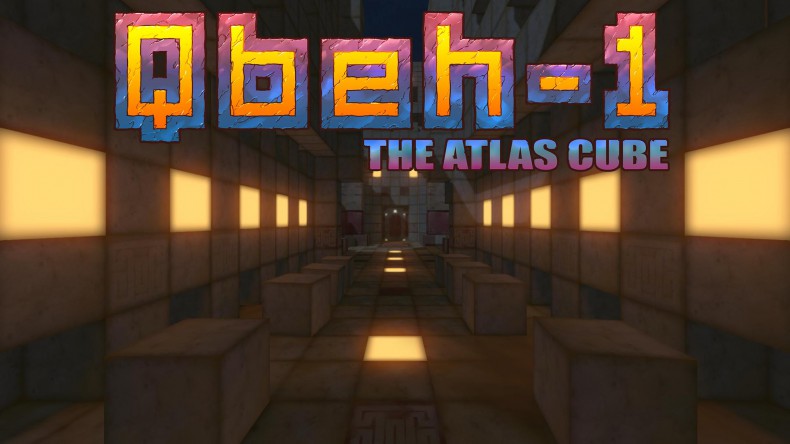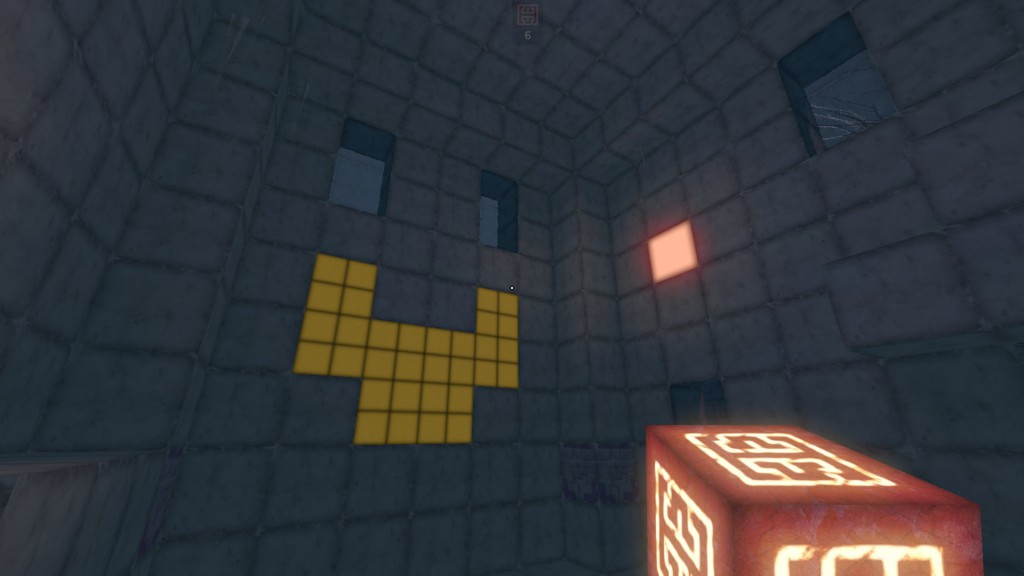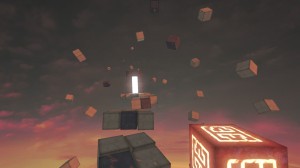‘Qbeh1: The Atlas Cube’ Review

-Beautiful minimalist aesthetic
-Refreshing gameplay
-Amazing sountrack
-Repitive level design
-Deceptive open levels
-Not very challenging
While not the most challenging puzzle game, 'Qbeh1: The Atlas Cube' is definitely a good puzzle game. Repitiive level design and strange fundamental puzzle mechanics keep this game from becoming great. But, most of that can be ignored for a truly wonderful and immserve experience.
Qbeh1: The Atlas Cube, developed by Liquid Flower, is a first-person puzzle platformer. This deceptively simple, atmospheric puzzle game combines a simple aesthetic with a tranquil soundtrack making traversal through the cube-built world a truly relaxing, yet enjoyable experience. Discovery and simplicity, two main themes of Qbeh1, both resonate within the gameplay and instil in the player a pleasant mindset.
Discovery is at the heart of Qbeh1, which is apparent from the onset of the game. Liquid Flower offers no tutorial whatsoever; even something as simple as the controls are left for the player to uncover. It’s a little disorienting at first, wandering aimlessly around the cube-build world trying to figure out the most basic gameplay mechanics. But, the level design is created in such a way to help players learn the mechanics without becoming overwhelming. Slowly, the player begins to learn what can and cannot be done within the game giving them a sense of understanding and accomplishment as they learn the games logic.
As said  earlier, this game is a puzzle platformer. The twist is that a good deal of the platforms have been stripped away from the environment. It’s up to the player to find “puzzle resources”, in the shape of cubes, to fill in the missing platform pieces. The cubes can be stacked and attached to one another, allowing staircases and bridges to be constructed to help reach your destination. As the game progresses, new mechanics are introduced in the form of different colored cubes. The most basic cube acts as a platform, but there are cubes that open doors, lift platforms, etc. It’s an interesting mechanic that slowly evolves as the game goes on.
earlier, this game is a puzzle platformer. The twist is that a good deal of the platforms have been stripped away from the environment. It’s up to the player to find “puzzle resources”, in the shape of cubes, to fill in the missing platform pieces. The cubes can be stacked and attached to one another, allowing staircases and bridges to be constructed to help reach your destination. As the game progresses, new mechanics are introduced in the form of different colored cubes. The most basic cube acts as a platform, but there are cubes that open doors, lift platforms, etc. It’s an interesting mechanic that slowly evolves as the game goes on.
Simplicity is an important theme in Qbeh1 and it shines in their aesthetic. Liquid Flower’s minimal level design is truly beautiful. Reminiscent of some user-created Minecraft maps, Qbeh1 takes on a simplistic cube-based aesthetic. The player experiences an elegant world that relaxes the mind and pulls them into a sense of tranquility.
Unfortunately, Liquid Flowers simplistic aesthetic turns out to be one of the games weaknesses. When first entering Qbeh1 the player is overtaken with beauty. It makes exploring the floating cube-built puzzles one of the most inciting parts of the game. Sadly, this wonderment quickly fades. The game’s color pallet is not too extensive, and Liquid Flower never really gets too creative with their level design. After about the tenth puzzle each level begins to look similar, which takes away from that itching urge to explore; it makes each new level feel less unique.
While exploring each level, it’s hard not to notice various animal imagery scattered about. Owl statues act as checkpoints and elephant statues stand tall. The animal imagery combined with suggestive level titles such as “Discovery”, “Crossroads”, and “Temple” (the first three levels of the game) gives the player a sense of a story that is not being told. Qbeh1’s lack of story does not really affect the game all that much, but having a purpose for the puzzling solving would add extra incentive to complete the game.
Qbeh1’s major problems lie within the puzzle mechanics, which are not that challenging. The puzzle logic forces players to place blocks in certain areas denoted by a colored block. When compared to games like Portal, Qbeh1 does not have the same openness in their puzzle design creating a far more linear experience. While playing, I found myself becoming more and more annoyed at the fact I always knew where to go next because I could plainly see where the puzzle began. 
Qbeh1: The Atlas Cube is a wonderful experience. The minimal aesthetic coupled with a brilliant soundtrack creates an excellent meditation on our natural desire to discover and the beauty of simplicity. The games’ themes resonate within the player as they feel an urge to explore the world. It’s sad that this feeling of wonderment cannot last, but the strong gameplay mechanics will keep the player collecting blocks and jumping through the obstacles all the way to the end.
SpawnFirst Recommends…
This atmospheric, elegantly designed platforming puzzling game is definitely worth checking out. The game takes inspiration from Portal but never hits the same level of quality Valve produced. It’s a relaxing experience, not geared towards puzzling gaming enthusiasts, but will entertain and relax most players.












